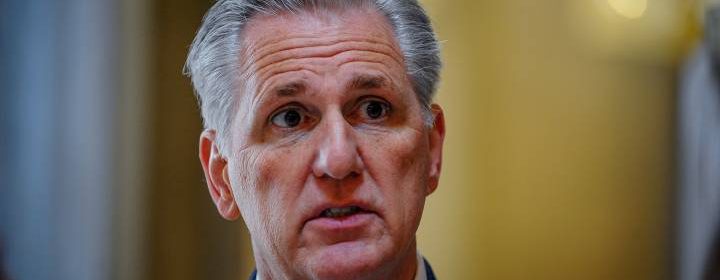Top 2 Republicans vow to reject Democrats’ demands on bill for broader coronavirus relief

The two top Republicans in the U.S. Congress vowed on Saturday to oppose Democrats’ demands to boost a proposed $250 billion bill to aid small businesses during the coronavirus pandemic by adding money for hospitals and state and local governments.
The statement from Senate Majority Leader Mitch McConnell and House of Representatives Republican Leader Kevin McCarthy came a day after top Senate Democrat Chuck Schumer said he and Treasury Secretary Steven Mnuchin planned to hold bipartisan talks on the bill next week.
“American workers are in crisis,” McConnell and McCarthy said. “This will not be Congress’s last word on COVID-19, but this crucial program needs funding now. American workers cannot be used as political hostages.”
Congress and the White House are scrambling to stem the economic fallout of the new coronavirus, which causes the COVID-19 respiratory disease that has killed more than 19,600 Americans, closed schools, business and most public activities and thrown more than 15 million people out of work.
Senate Republicans on Thursday failed to ram through a $250 billion increase in loans for small businesses suffering due to the outbreak. Democrats support the $250 billion in new funding but want to set aside some of the lending for community and minority-owned banks.
Some Congressional Republicans are against the second batch of funding, calling it premature.
Maryland Governor Larry Hogan, the Republican chairman of the National Governors Association, and vice-chair Governor Andrew Cuomo of New York, a Democrat, on Saturday urged the federal government to provide immediate fiscal relief for states.
“The federal stimulus bill is going to be key,” Cuomo told a news conference. “That legislation, in my opinion, has to be better than the past legislation — has to be less political, less pork barrel and more targeted to the actual purpose” of helping places most directly affected by the coronavirus.
Cuomo and Hogan called on Congress to provide $500 billion to meet the states’ budgetary shortfalls.
Source: Read Full Article
